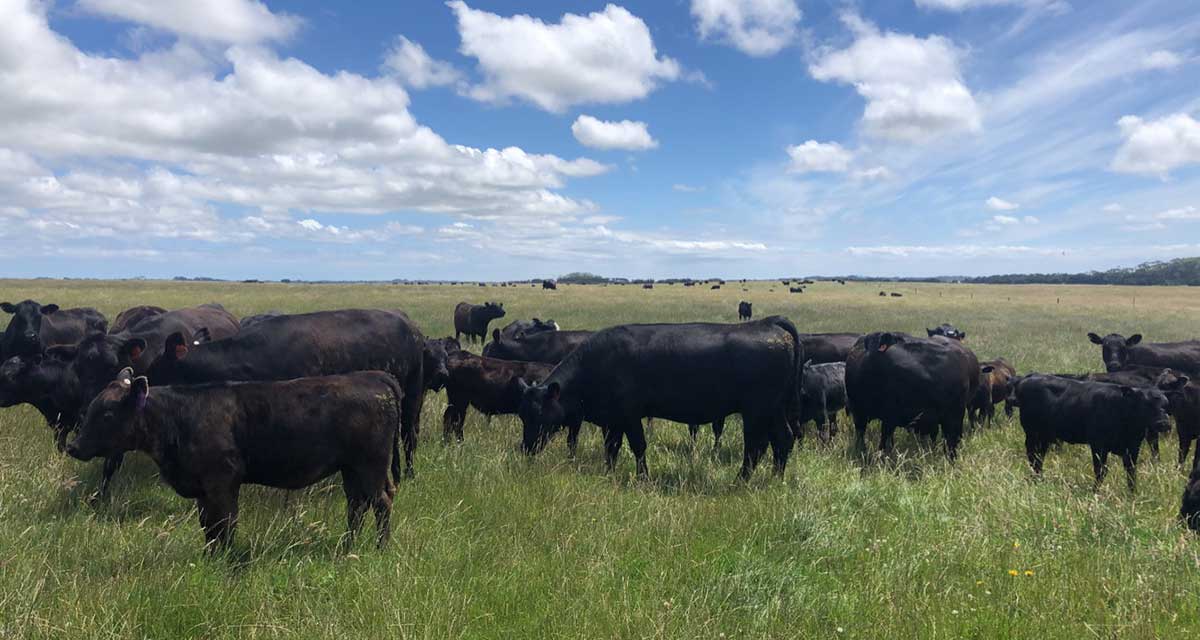2022 Angus Foundation Research Grant Recipients


We are thrilled to introduce the recipients of the 2022 Angus Foundation Research Grant! These outstanding researchers and students were selected for their innovative and impactful projects that provide insightful research to advance the Angus breed and the broader beef sector.
The Angus Foundation Research Grant is dedicated to supporting research that enhances the value of Angus cattle. We are proud to support these exceptional individuals and look forward to the advancements their research will bring to the industry.
 Jena Alexopoulos – The University of Adelaide, SA.
Jena Alexopoulos – The University of Adelaide, SA.
Project title: An Economic Comparison of Fixed-time Artificial Insemination and Natural Mate in Commercial Angus Beef Heifers.
Project aim: Artificial insemination (AI) programs are increasingly popular in commercial beef production systems. This is due to the potential benefits associated with increased number of early pregnancies, allowing greater recovery time before second joining, increasing re-breeding conception rates. In addition to, a greater number of calves born early in the season, increasing weaning weights and access to sires of greater genetic merit and improved labour efficiency at time of calving due to synchronisation and shorter calving distributions.
Despite the additional expenses associated with fixed-time artificial insemination (FTAI) programs, previous reports suggest the performance and productivity of heifers that conceive to AI off-set these costs. Therefore the aim of this project was to measure and compare productivity and performance of Angus beef heifers that that were fixed-time artificial inseminated or naturally mated. In addition to, generating a cost benefit of a FTAI calf, and to determine the value of FTAI as a reproductive strategy relative to herd profitability.
 Nantapong Kamprasert – The University of New England, NSW
Nantapong Kamprasert – The University of New England, NSW
Project Title: Genomic Prediction Using Imputed Whole-Genome Sequence in Australian Angus Cattle
With the availability of whole-genome sequencing, the research project aimed to leverage the whole genome sequence (WGS), which contains millions of genetic markers, to obtain more accurate breeding values for Angus Australia. The project studied on economically important traits, bodyweight and carcass traits, in the Angus. Prediction ability was compared across three genotyping density arrays: the common 50K genotype array, a high-density 700K array and WGS. The study found no difference in prediction ability across different genotype densities for all traits studied. This means that the current genotyping array well covers the genome structure for the Angus population. Also, the study indicated that whole-genome sequence-based prediction required high-performance computing resources. In conclusion, to date, with the lack of substantial improvement in prediction accuracy and high-demand for computing resources needed for WGS-based prediction the current genotype density is sufficient for accurate genomic predictions in routine genetic evaluations for the Angus Australia.
Nantapong’s research supervisor, Professor Sam Clark, described Nantapong as “an excellent student who has very strong analytical and data handling skills. His ability to handle and manipulate very large datasets, thousands of animals with many millions of SNP genotypes, has been key to him undertaking such computationally demanding and complex analyses”.
We congratulate Jena Alexopoulos and Nantapong Kamprasert for their outstanding contributions. Please see the following articles for updates on their respective projects and the impact of their findings.
For more information about the Angus Foundation Research Grant and to learn about future opportunities, please visit the Angus Australia website.
Hanlie Jansen, Extension Officer